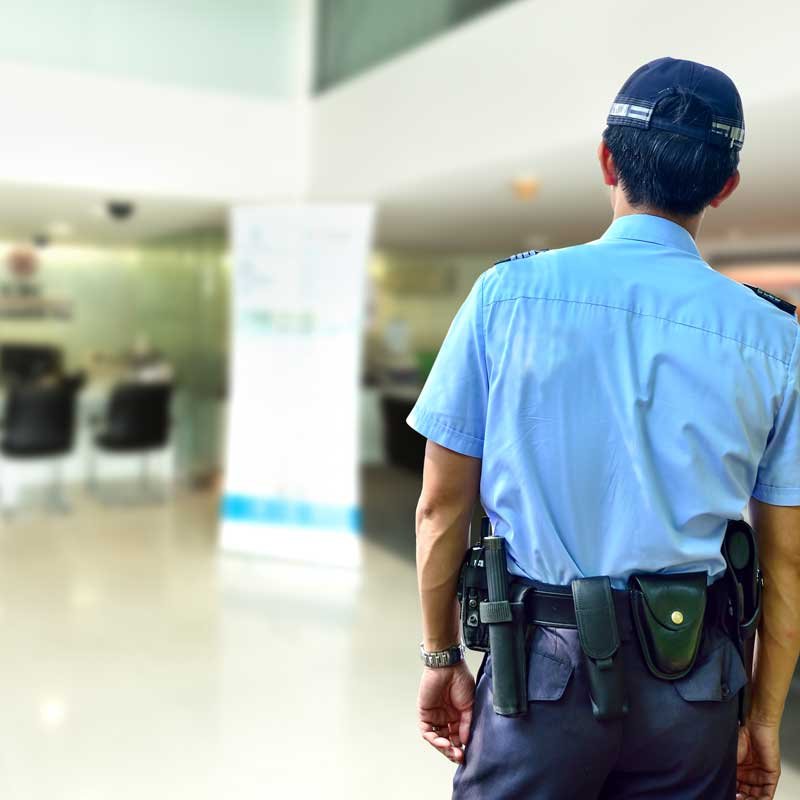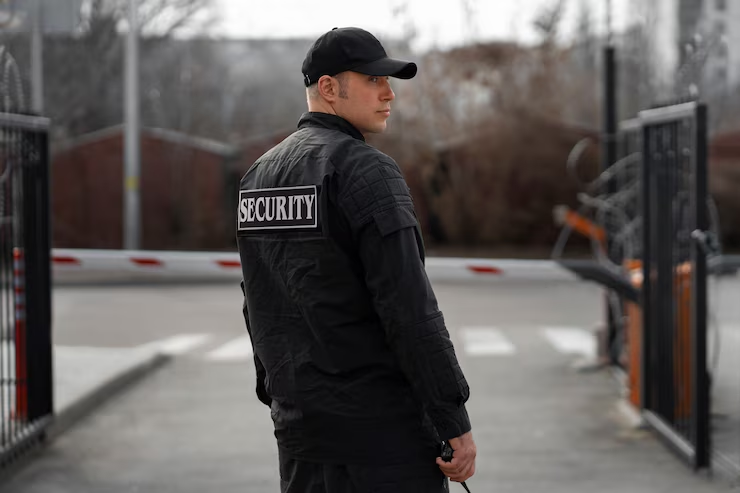
Healthcare facilities in Glendale face unique security challenges that require specialized approaches distinct from those typically used in commercial settings. Emergency departments see patients during their most vulnerable and stressful moments, psychiatric units manage individuals experiencing mental health crises, and pharmacies store controlled substances that attract criminal attention. Professional hospital security Glendale services must balance maintaining safe environments with preserving the healing atmosphere essential to patient care.
The complexity of hospital security becomes apparent when you consider the multiple stakeholders involved: patients seeking treatment, worried family members, dedicated medical staff, vendors making deliveries, and the general public accessing various services. Each group has different needs and expectations, yet all require protection in facilities that remain open 24/7 with multiple entry points and constant activity.
Understanding Healthcare Security Fundamentals
Effective hospital security implementation starts with recognizing that healthcare environments differ fundamentally from other settings. Hospitals can’t simply lock doors and restrict access—they must remain accessible for emergency situations while preventing unauthorized entry to sensitive areas. This balance requires sophisticated security strategies that many facilities struggle to implement effectively.
At Uniworth Security, our experience with Glendale healthcare facilities has taught us that successful hospital security depends on three core principles: comprehensive risk assessment, specialized training programs, and integrated response protocols. These elements work together to create security frameworks that protect everyone while supporting the medical mission.
Risk Assessment and Vulnerability Analysis
Every healthcare facility has unique vulnerabilities based on location, size, services offered, and patient populations served. Emergency departments experience different security challenges than outpatient clinics, while behavioral health units require specialized approaches that general hospitals might not need.
Professional security assessments examine access points, high-risk areas, current security measures, staff safety concerns, and historical incident patterns. This analysis identifies specific vulnerabilities that generic security approaches might miss, allowing facilities to allocate resources where they’ll provide maximum protection.
Emergency Department Security Excellence
uniEmergency departments represent the highest-risk areas in most healthcare facilities. Patients arrive in crisis situations, often under the influence of drugs or alcohol, sometimes experiencing mental health emergencies, and occasionally involved in violent incidents that preceded their arrival.
Hospital guards Glendale assigned to emergency departments require specialized training in crisis intervention, de-escalation techniques, and rapid response to violent situations. They must recognize early warning signs of potential violence, intervene before situations escalate, and use appropriate force levels when physical intervention becomes necessary.
Patient and Staff Safety Protocols
Emergency department security extends beyond responding to violent incidents. Guards monitor waiting areas for potential conflicts between patients or family members, manage visitor access during treatment procedures, and prevent unauthorized individuals from entering treatment areas where they might interfere with medical care.
Staff safety receives particular attention, as healthcare workers face elevated risks of workplace violence compared to most other professions. Security personnel escort nurses and doctors to parking areas during late shifts, respond immediately to staff panic button activations, and maintain a visible presence throughout emergency departments to deter potential aggressors.
Specialized Training for Healthcare Environments
Generic security training doesn’t adequately prepare guards for healthcare settings. Medical security personnel need specialized education covering HIPAA privacy requirements, patient rights regulations, mental health crisis recognition, and medical emergency response protocols.
De-escalation and Crisis Intervention
The most valuable skill for hospital security personnel involves preventing conflicts rather than responding to them after they escalate. Professional guards learn verbal de-escalation techniques that can calm agitated patients, reduce family member anxiety, and resolve disputes before they become physical confrontations.
This training includes recognizing signs of delirium, understanding how pain and fear affect behavior, and communicating effectively with individuals experiencing mental health crises. Guards who master these skills prevent far more incidents than they respond to, creating safer environments through proactive intervention.
Medical Emergency Response Capabilities
Hospital security guards often serve as first responders to medical emergencies occurring in public areas, parking structures, or non-clinical spaces. Professional hospital security Glendale personnel maintain current CPR and first aid certifications, understand basic emergency medical protocols, and can assist clinical staff during medical crisis situations.
This medical emergency training ensures that security personnel contribute positively during critical moments rather than simply waiting for clinical responders to arrive. Quick, appropriate action during the first minutes of cardiac arrest, choking incidents, or severe injuries can significantly improve patient outcomes.
Access Control and Visitor Management
Healthcare facilities must balance accessibility with security, allowing legitimate visitors while preventing unauthorized access to sensitive areas. Modern access control systems use electronic badges, visitor registration protocols, and monitored entry points to manage facility access effectively.
Hospital guards Glendale personnel manage visitor check-in processes, verify identification, issue temporary badges, and monitor access to restricted areas. They ensure that only authorized individuals reach patient care areas, protecting patient privacy while preventing potential security incidents.
After-Hours Access Protocols
Healthcare facilities never truly close, but they do reduce access points during overnight hours to concentrate security resources more effectively. Professional security teams manage this transition, securing unnecessary entry points while ensuring that emergency access remains available and clearly marked.
Night shift security protocols include increased patrol frequencies, enhanced monitoring of parking structures, and stricter visitor verification procedures. These measures recognize that security risks often increase during overnight hours when fewer staff members are present and natural surveillance decreases.
Technology Integration for Enhanced Protection
Modern medical security programs integrate advanced technologies that extend human security capabilities. Surveillance camera systems provide continuous monitoring of key areas, while access control systems create detailed logs of facility entry and movement patterns.
Surveillance Systems and Real-Time Monitoring
Strategic camera placement throughout facilities allows security personnel to monitor multiple areas simultaneously, identifying potential problems early and coordinating responses more effectively. Modern systems use motion detection, facial recognition, and artificial intelligence to alert guards about unusual activities that might indicate security concerns.
Integration between surveillance systems and guard patrol routes ensures comprehensive coverage, with cameras monitoring areas between patrol visits and guards investigating alerts generated by automated systems.
Emergency Communication Systems
Panic button systems, mobile duress alarms, and facility-wide intercoms enable rapid communication during emergencies. Staff members can instantly alert security personnel about developing situations, while guards can broadcast warnings or instructions throughout facilities when necessary.
These communication tools prove particularly valuable during active threat situations, medical emergencies affecting multiple patients, or facility evacuations where coordinated response across large areas becomes essential.
Behavioral Health Unit Security
Psychiatric units and behavioral health facilities require specialized security approaches that balance patient safety with therapeutic environments. Hospital security Glendale personnel working in these settings receive additional training in mental health crisis intervention, trauma-informed care principles, and specialized restraint techniques that prioritize patient dignity.
Security measures in behavioral health units focus on preventing patient self-harm, managing aggressive behavior safely, and maintaining secure perimeters that prevent unauthorized departures. Guards must understand psychiatric conditions, recognize warning signs of escalating behavior, and intervene using therapeutic techniques whenever possible.
Pharmaceutical Security and Controlled Substance Protection
Hospital pharmacies store significant quantities of controlled substances that attract criminal attention both from external thieves and potentially from staff members struggling with addiction. Professional security programs implement strict access controls, inventory monitoring systems, and security procedures that protect these valuable and dangerous materials.
Regular security audits verify that controlled substance protocols remain effective, identifying potential vulnerabilities before they’re exploited. This proactive approach prevents theft incidents that could compromise patient care and expose facilities to regulatory sanctions.
Building Long-Term Security Partnerships
Effective hospital security requires ongoing collaboration between security providers, facility administrators, medical staff, and community partners. Hospital guards’ Glendale services work most effectively when integrated fully into facility operations rather than functioning as separate entities.
At Uniworth Security, we emphasize building lasting partnerships with healthcare clients, continuously evaluating security programs and adjusting strategies based on evolving needs and emerging threats. Regular meetings with facility leadership, incident analysis sessions, and updated training programs ensure that security measures remain current and effective.
Investing in professional hospital security services protects patients, staff, visitors, and the reputation of healthcare institutions serving the Glendale community. When healthcare facilities partner with experienced security providers who understand the unique challenges of medical environments, they create safer spaces where healing can occur without compromise.


